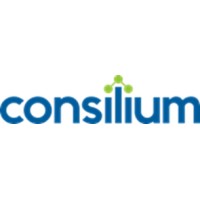A magazine distributed to tens of thousands of British schoolchildren by the Institute of Economic Affairs (IEA) promotes tobacco tax cuts, climate change denial, tax havens, and privatising the National Health Service (NHS) – but doesn’t say where the IEA’s money comes from, according to a story by openDemocracy.net.
The IEA, a registered educational charity, is said to send copies of the magazine EA free of charge to every school teaching A-Level economics or business studies in the UK.
‘The influential “think tank” does not disclose its funding but it has received money from British American Tobacco, oil giant BP, Jersey Finance, gambling lobbyists and right-wing US foundations pushing to privatise the NHS,’ said openDemocracy. ‘While articles on many of these topics have appeared in the IEA’s schools’ magazine, it does not disclose these financial links…
‘A shadow cabinet minister has called for the Charity Commission to broaden its ongoing probe of the IEA to include the schools’ magazine.
‘Labour shadow cabinet office minister Jon Trickett said: “It is a debasement of both politics and education when an organisation, posing as a charity, pumps seemingly paid-for propaganda into our schools”.’
“In the interests of transparency and democracy, we need to know who funds these organisations and what exactly their purpose is,” said Trickett. “Because what they say, and what they actually do, too often simply doesn’t match up.”
Tamasin Cave from Spinwatch, which investigates the PR and lobbying industry, was quoted as saying: “we are now awake to the fact that the IEA is not an independent think tank”. “It is a lobby group for private interests,” Cave said. “Most are secret, but we know it is funded by oil giants, the tobacco industry and a tax haven.
“The IEA’s magazine provides a means for these people to feed their propaganda into schools, whether that’s climate change denial, or opposition to public health policies. Just as the public are exposed to it through the IEA appearing on the BBC.”
The story said that, when asked by openDemocracy how the magazine was funded, the IEA would say only that the think tank covered the costs of the 47,000 copies sent to students every year. Although the think tank’s funders are not disclosed publicly, it denies that its editorial content is driven by its donors’ interests.
Has 'thinking' tanked?












